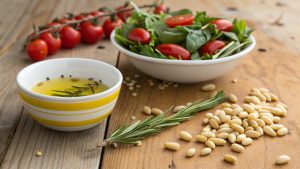Bell peppers, often celebrated for their vibrant colors and crunchy texture, are more than just a pretty addition to your plate—they are a powerhouse of nutrients that can elevate your health in numerous ways. From sweet to spicy variations, these versatile veggies can effortlessly enhance a wide array of dishes, making them a delightful staple in homes around the world. Whether you’re tossing them in a salad, grilling them for a barbecue, or incorporating them into a stir-fry, bell peppers offer a burst of flavor and a wealth of health benefits that are hard to ignore.
Nutritional Benefits of Bell Peppers
One of the most compelling reasons to add bell peppers to your diet is their impressive nutrient profile. They are low in calories but packed with vitamins, minerals, and antioxidants. Here’s what makes bell peppers stand out:
Rich in Vitamins and Minerals
-
- Vitamin C: Bell peppers are one of the richest sources of vitamin C. A single medium-sized bell pepper can provide over 150% of your daily vitamin C needs, which is essential for immune function and skin health.
-
- Vitamin A: These colorful veggies also contain beta-carotene, which your body converts to vitamin A, supporting vision and skin health.
-
- Vitamin B6: Important for brain health and metabolism, vitamin B6 is abundant in bell peppers, contributing to overall well-being.
-
- Folate: This vital nutrient is essential for cell division and metabolism, making bell peppers a great addition for pregnant women and those looking to support their overall health.
Antioxidant Powerhouse
Bell peppers are loaded with antioxidants, which protect your cells from damage caused by free radicals. The vibrant colors of bell peppers indicate that they are rich in phytochemicals, including:
-
- Capsanthin: This antioxidant found in red bell peppers is linked to anti-inflammatory effects, supporting overall health.
-
- Quercetin: A powerful flavonoid that may help reduce the risk of chronic diseases.
Culinary Versatility
One of the best things about bell peppers is their versatility in the kitchen. Here are some delicious and creative ways to include them in your meals:
-
- Raw: Snack on bell pepper strips with hummus or guacamole for a healthy treat.
-
- Roasted: Brighten up your salads or grain bowls by adding roasted bell peppers for an extra layer of flavor.
-
- Stuffed: Create a healthy main dish by stuffing bell peppers with a mixture of quinoa, black beans, and spices.
-
- Grilled: Add grilled bell peppers to sandwiches and wraps to boost their nutritional content.
Tips for Enjoying Bell Peppers
-
- Choose Color: Different colored bell peppers (red, yellow, green, orange) offer varying levels of nutrients. Mixing them up not only provides a spectrum of flavors but also nutritional diversity.
-
- Store Properly: To keep your bell peppers fresh, store them in a cool, dry place in your fridge. Avoid washing them until you’re ready to use them to prevent spoilage.
-
- Add a Crunch: Incorporate bell peppers into your meals to add texture and color — your eyes and taste buds will thank you!
Eating healthy isn’t just about choosing the right foods; it’s about setting yourself up for a better life. As the renowned author and nutrition expert Michael Pollan once said, “Eat food, not much, mostly plants.” So, make bell peppers a vibrant part of your plant-based meals, and watch how they can contribute to your overall health and vitality. Embrace the rainbow, and let the power of bell peppers work its magic on your diet!



